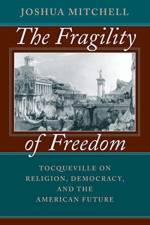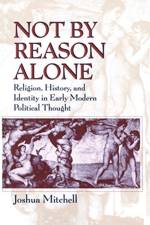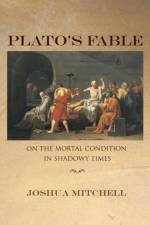Bøger af Joshua Mitchell
-
- Bog
- 1.073,95 kr.
-
158,95 kr. - Bog
- 158,95 kr.
-
198,95 - 283,95 kr. - Bog
- 198,95 kr.
-
- Tocqueville on Religion, Democracy, and the American Future
378,95 kr. Though Tocqueville is the main subject, this book also examines Augustine, Hobbes, Rousseau, Hegel and Nietzsche. It offers an interpretation of Tocqueville as a moral historian, concerned less with history as an objective record than as a disclosure of the trajectory of the human spirit.
- Bog
- 378,95 kr.
-
398,95 - 1.078,95 kr. - Bog
- 398,95 kr.
-
- On the Mortal Condition in Shadowy Times
574,95 kr. This book is an exploration of Plato's Republic that bypasses arcane scholarly debates. Plato's Fable provides refreshing insight into what, in Plato's view, is the central problem of life: the mortal propensity to adopt defective ways of answering the question of how to live well. How, in light of these tendencies, can humankind be saved? Joshua Mitchell discusses the question in unprecedented depth by examining one of the great books of Western civilization. He draws us beyond the ancients/moderns debate, and beyond the notion that Plato's Republic is best understood as shedding light on the promise of discursive democracy. Instead, Mitchell argues, the question that ought to preoccupy us today is neither "e;reason"e; nor "e;discourse,"e; but rather "e;imitation."e; To what extent is man first and foremost an "e;imitative"e; being? This, Mitchell asserts, is the subtext of the great political and foreign policy debates of our times. Plato's Fable is not simply a work of textual exegesis. It is an attempt to move debates within political theory beyond their current location. Mitchell recovers insights about the depth of the problem of mortal imitation from Plato's magnificent work, and seeks to explicate the meaning of Plato's central claim--that "e;only philosophy can save us."e;
- Bog
- 574,95 kr.






